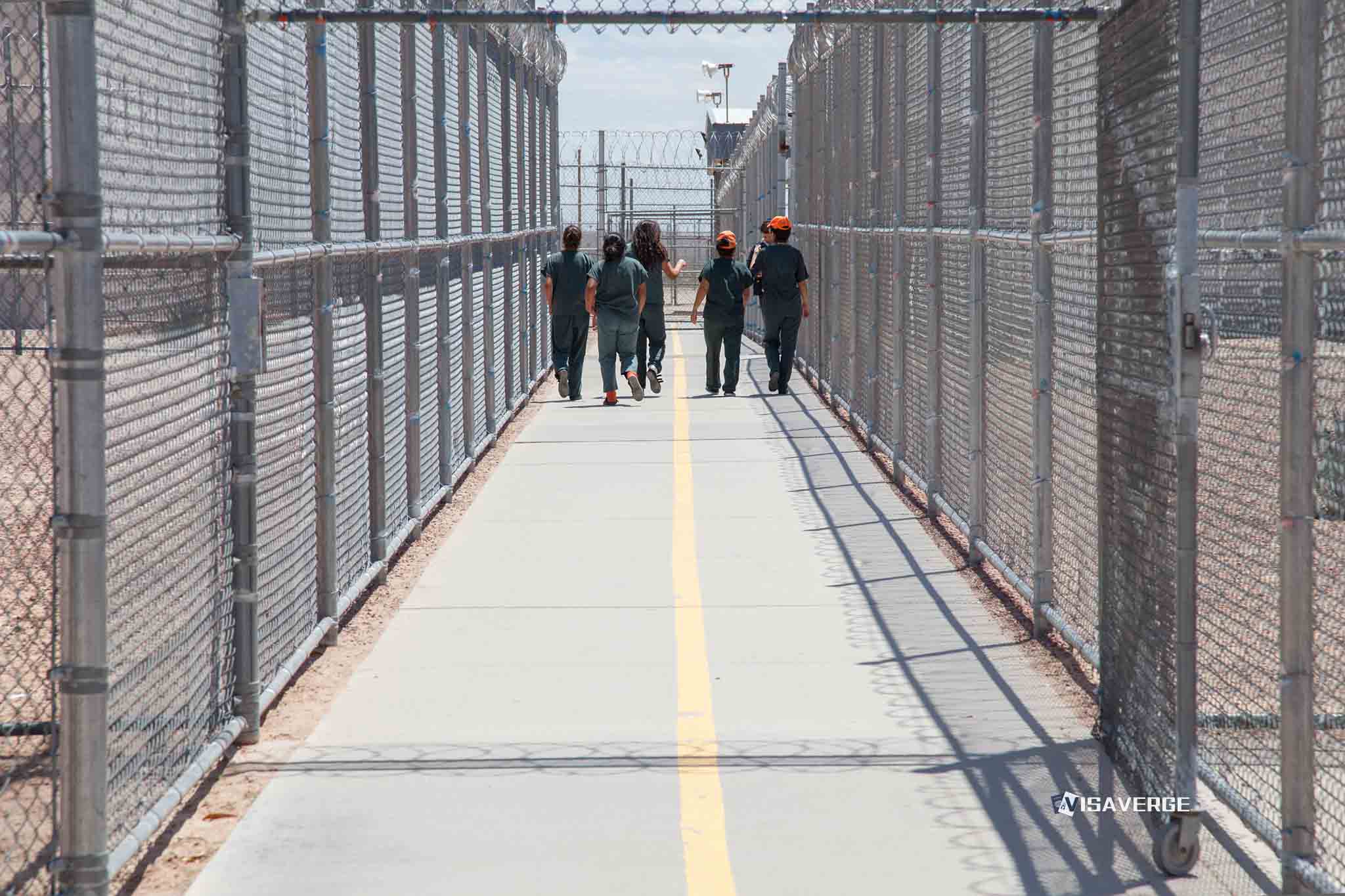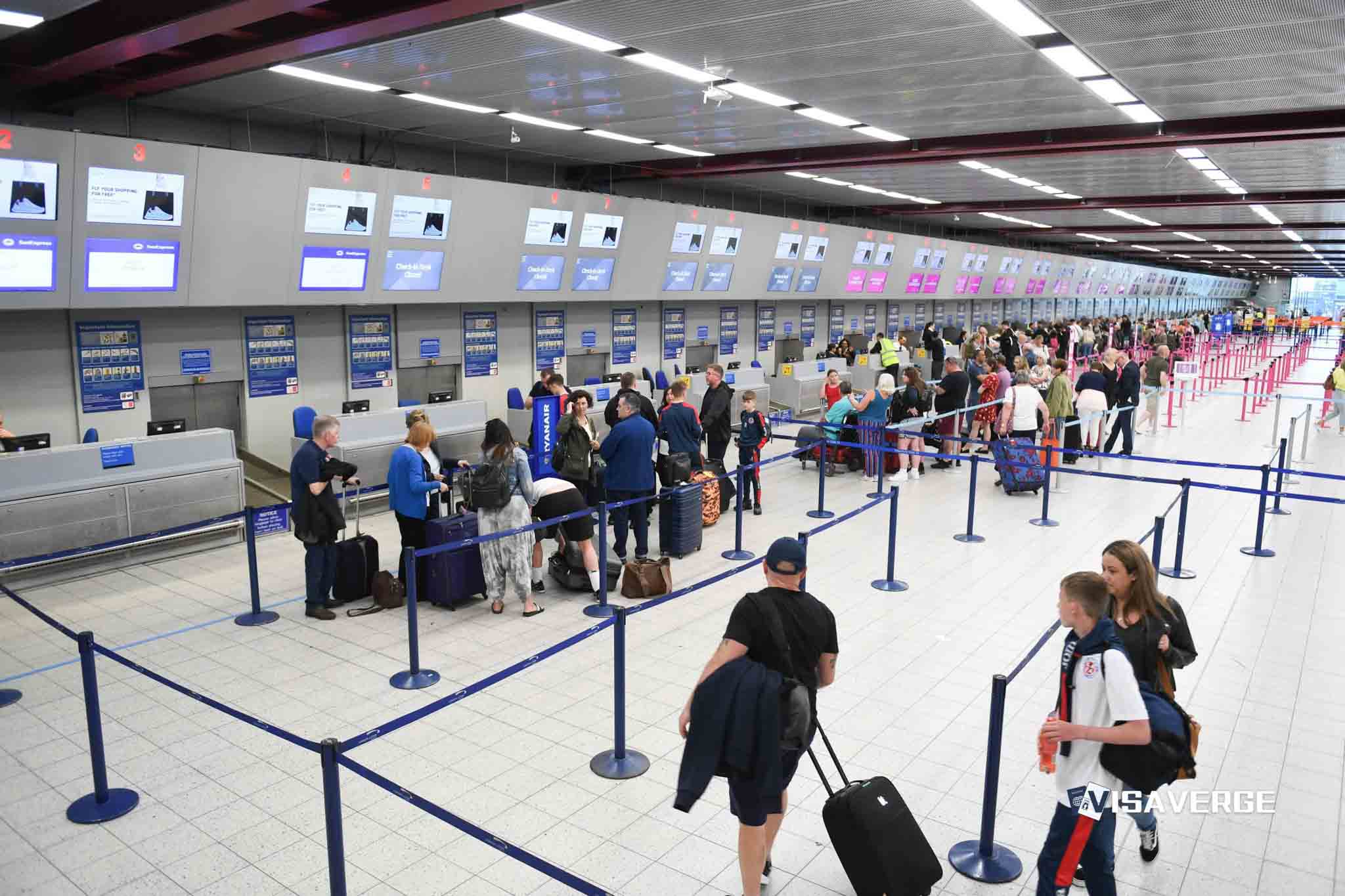A 35-year-old Afghan interpreter named Zia, who helped U.S. troops in Afghanistan, was detained by ICE on July 16, 2025, in Connecticut. Lawmakers, advocates, and his family are urgently calling for his release, warning that deporting him could put his life in danger and send a chilling message to other U.S. allies.
Zia’s Detention: What Happened and Why It Matters

Zia, a husband and father of five, worked as a translator for U.S. forces in Afghanistan for about five years. After the Taliban took over Afghanistan in 2021, he and his family fled the country, fearing for their safety. Zia entered the United States 🇺🇸 legally on October 8, 2024, through JFK airport. He came under humanitarian parole and with approval from the Special Immigrant Visa (SIV) program, which was created to protect Afghan allies who supported U.S. missions.
On July 16, 2025, Zia went to a routine biometrics appointment at a U.S. Citizenship and Immigration Services (USCIS) center in East Hartford, Connecticut. After the appointment, six masked ICE agents, some wearing balaclavas, surrounded him and took him into custody. He was transferred to a detention facility in Plymouth, Massachusetts. According to his attorney, Lauren Cundick Petersen, Zia has no criminal history and has followed all legal requirements since arriving in the United States 🇺🇸.
Despite his legal entry and ongoing green card application, Zia was given an Order of Expedited Removal. This order allows certain noncitizens to be removed from the country quickly, without a hearing before an immigration judge. A federal judge has temporarily stopped his removal, but Zia remains in detention and fears being sent back to Afghanistan, where he could face serious harm.
ICE and DHS Response
ICE confirmed Zia’s arrest but did not share details, saying the case is part of a larger investigation. The Department of Homeland Security (DHS) stated that Zia is under criminal investigation, but they have not made the reasons public. Zia’s supporters say he has done nothing wrong and that his detention is unfair, especially given his service to U.S. forces.
Lawmakers and Advocacy Groups Speak Out
Zia’s detention has sparked outrage among lawmakers and advocacy groups. Senator Richard Blumenthal (Connecticut), Representative Jahana Hayes (Connecticut-5), and Representative Bill Keating (Massachusetts) have all spoken out against the detention. They argue that the United States 🇺🇸 has a moral duty to protect Afghan interpreters like Zia, who risked their lives to help American troops.
Senator Blumenthal promised to use “every tool available” to stop Zia’s deportation, including legal briefs and new laws if needed. He criticized the way Zia was arrested and the immigration system that allows such detentions, even for people with legal protections. Representative Hayes warned that actions like this could hurt national security by making it harder for the United States 🇺🇸 to find allies in the future. She said, “If we treat our allies this way, who will trust us next time?”
Advocacy groups such as AfghanEvac and No One Left Behind have joined the call for Zia’s release. They point out that more than 300 Afghan interpreters and their families were killed between 2014 and 2021 because of their work with U.S. forces. These groups say that detaining and possibly deporting Zia sends a dangerous message to other allies who may need U.S. help in the future.
The Special Immigrant Visa (SIV) and Humanitarian Parole Programs
The SIV and humanitarian parole programs were created to give Afghan allies a safe way to come to the United States 🇺🇸. The SIV program is for Afghans who worked with the U.S. military or government, while humanitarian parole allows people to enter the country for urgent reasons, such as escaping danger. Zia qualified for both programs and entered the country legally.
However, Zia’s case shows that even people with legal status can face detention and possible deportation. Recent changes in immigration enforcement have led to more cases like Zia’s, where Afghan interpreters and their families are detained despite following all the rules. This has raised concerns about whether the United States 🇺🇸 is keeping its promises to those who helped its missions abroad.
Expedited Removal: A Controversial Process
The use of expedited removal in Zia’s case is especially controversial. Expedited removal is a process that allows certain noncitizens to be removed from the United States 🇺🇸 quickly, without a hearing before an immigration judge. This process is meant for people who have recently entered the country without permission or who do not have valid documents.
Critics argue that using expedited removal for someone like Zia, who entered legally and is applying for a green card, is unfair and denies him the chance to explain his case in court. They worry that this process could lead to wrongful deportations, especially for people who face real danger if sent back to their home countries.
Legislative Efforts: The Afghan Adjustment Act
To address these problems, Senator Blumenthal is leading efforts to pass the Afghan Adjustment Act. This proposed law would give Afghan refugees who have passed extra security checks a clear path to permanent legal residency in the United States 🇺🇸. The goal is to prevent cases like Zia’s by making sure Afghan allies have strong legal protections and are not at risk of sudden detention or deportation.
Supporters of the Afghan Adjustment Act say it is needed to keep the United States 🇺🇸 promise to its allies and to show that the country values those who helped its missions. They argue that passing this law would also help national security by encouraging future allies to trust the United States 🇺🇸.
Impact on Zia and His Family
While lawmakers and advocates work to free Zia, he remains in detention in Plymouth, Massachusetts. His family is still in the United States 🇺🇸, waiting anxiously for news. Zia’s attorney continues to fight for his release and for legal protection that would allow him to stay with his family.
The case has caused fear and uncertainty among other Afghan interpreters and their families in the United States 🇺🇸. Many worry that they could be detained or deported, even if they have followed all the rules. This fear is especially strong among those who, like Zia, came to the United States 🇺🇸 under the SIV or humanitarian parole programs.
Broader Implications for Afghan Allies and U.S. Immigration Policy
Zia’s detention has sparked a wider debate about how the United States 🇺🇸 treats its allies and whether its immigration system is fair and reliable. Many advocates say that cases like Zia’s show the need for reform, especially for people who risked their lives to help U.S. missions.
Key concerns include:
- Trust and National Security: If Afghan interpreters and other allies see that the United States 🇺🇸 does not protect them, it may become harder to find people willing to help in future conflicts. This could hurt national security and make U.S. missions more dangerous.
- Due Process: The use of expedited removal raises questions about whether people are getting a fair chance to explain their cases and avoid wrongful deportation.
- Family Separation: Detaining and possibly deporting people like Zia can break up families and cause lasting harm to children and spouses who depend on them.
- Moral Responsibility: Many believe the United States 🇺🇸 has a moral duty to protect those who helped its troops, especially when their lives are at risk if they return home.
What Can Be Done: Solutions and Next Steps
Lawmakers, advocates, and legal experts are working on several solutions to help Zia and others in similar situations:
- Immediate Release: Lawmakers and advocacy groups are urging ICE to release Zia from detention while his case is reviewed. They argue that he poses no threat and should be allowed to stay with his family.
- Legal Challenges: Zia’s attorney is fighting the expedited removal order in court. A federal judge has already stopped his removal for now, but a permanent solution is still needed.
-
Legislative Action: Passing the Afghan Adjustment Act would give Afghan interpreters and refugees a clear path to permanent residency and protect them from sudden detention or deportation.
-
Policy Changes: Advocates are calling for changes to ICE and DHS policies to make sure that people with legal status, especially those who helped U.S. missions, are not targeted for detention or removal without strong evidence of wrongdoing.
-
Community Support: Organizations like AfghanEvac and No One Left Behind are providing legal help, advocacy, and support to Afghan interpreters and their families. They encourage affected families to reach out for help and to stay informed about their rights.
How to Get Help and Stay Informed
If you or someone you know is an Afghan interpreter or refugee facing immigration problems, there are several resources available:
- AfghanEvac and No One Left Behind offer legal help and advocacy for Afghan interpreters and their families.
- Senator Richard Blumenthal’s office is actively involved in supporting Zia and can provide updates or assistance.
- The USCIS official website provides information on humanitarian parole and the SIV program, including eligibility and application steps.
- For details on expedited removal and your rights, the ICE official website offers guidance and contact information.
Official Forms and Procedures
If you are applying for a Special Immigrant Visa, you will need to complete Form DS-260 (Immigrant Visa and Alien Registration Application). For humanitarian parole, you must file Form I-131 (Application for Travel Document) with USCIS. If you receive an expedited removal order, you have the right to seek legal help and may be able to challenge the order in court.
Looking Ahead: What Zia’s Case Means for the Future
Zia’s case is not just about one man and his family. It highlights bigger problems in the U.S. immigration system and raises questions about how the United States 🇺🇸 treats those who risked everything to help its missions. Lawmakers, advocates, and affected families are watching closely to see what happens next.
- Will Zia be released and allowed to stay with his family?
- Will Congress pass new laws to protect Afghan allies?
- Will ICE and DHS change their policies to prevent similar cases in the future?
As reported by VisaVerge.com, the outcome of Zia’s case could set an important example for how the United States 🇺🇸 handles the promises it made to Afghan interpreters and other allies. Many hope that his story will lead to stronger protections, fairer policies, and a renewed commitment to those who stood by U.S. troops in times of need.
Takeaways for Affected Communities
- Stay Informed: Keep up with news and updates from trusted sources, including advocacy groups and lawmakers.
- Know Your Rights: If you are an Afghan interpreter or refugee, learn about your legal rights and options. Seek help from organizations that specialize in supporting your community.
- Reach Out for Help: Don’t face immigration problems alone. Contact advocacy groups, legal aid organizations, or your local lawmakers for support.
- Advocate for Change: Share your story and join efforts to push for better laws and policies that protect Afghan allies and other vulnerable immigrants.
Zia’s case shows that the fight for fair treatment and protection is ongoing. With continued advocacy, legal action, and public support, there is hope for a better future for Zia, his family, and all Afghan interpreters who risked their lives for the United States 🇺🇸.
Learn Today
ICE → U.S. Immigration and Customs Enforcement responsible for immigration enforcement and detention operations.
Special Immigrant Visa (SIV) → A visa program protecting Afghan allies who assisted U.S. forces, allowing legal U.S. entry.
Humanitarian Parole → Temporary permission for individuals to enter the U.S. due to urgent humanitarian reasons.
Expedited Removal → A fast deportation process that bypasses immigration court hearings for certain noncitizens.
Afghan Adjustment Act → Proposed legislation creating a path to permanent residency for Afghan refugees with security clearance.
This Article in a Nutshell
Afghan interpreter Zia was detained by ICE despite legal protections, igniting outrage and highlighting flaws in U.S. immigration policies for allies. Lawmakers push for strong legal reforms and immediate release, fearing wrongful deportation risks and national security impacts. His case exemplifies urgent calls to protect those who aided U.S. missions abroad.
— By VisaVerge.com








